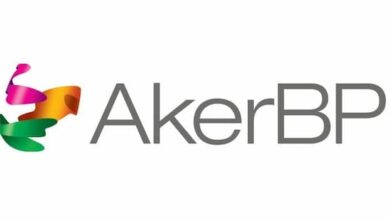Report: 81% of oil and gas businesses have accelerated or intend to accelerate their deployment of IoT in response to COVID-19
New research by Inmarsat, a mobile satellite communications provider, reveals a rapid increase in the maturity level of the industrial Internet of Things (IoT) across the oil and gas sector since the start of the COVID-19 pandemic. Respondents, including exploration, extraction and distribution businesses, reported that COVID-19 has demonstrated the importance of IoT to their businesses.
According to the research, 74% of oil and gas respondents have fully deployed at least one IoT project, with 44% having achieved this in the 12-month period from Q2 2020. Of the remaining 26% oil and gas respondents that have not yet adopted IoT in any form, all of them are either currently testing it, or plan to deploy or test at least one IoT project in the next two years.
A further 81% of oil and gas respondents indicated they have or intend to accelerate the adoption of IoT in response to challenges related to COVID-19. This figure includes 51% who have already accelerated IoT adoption to respond to COVID-19, versus 17% who will accelerate over the next 12 months and 13% who will accelerate beyond the next 12 months. The 51% that have already accelerated IoT adoption are less likely to state that COVID-19 has negatively impacted their ability to operate, demonstrating a link between IoT and business continuity during the pandemic. Additionally, over half (52%) of respondents in the sector indicated that business and operational challenges related to COVID-19 have underlined the importance of IoT.
“The oil and gas sector has a history of innovation, and our research reveals that the pace of IoT adoption in the industry has significantly increased as a result of the pandemic,” Damian Lewis, Market Development at Inmarsat, said. “The sector is now relatively advanced in its adoption of IoT, demonstrating the importance businesses are attributing to the technology as a way to respond to both COVID-19 and wider industry challenges. In a sector where so much activity takes place in some of the world’s most remote and inhospitable conditions, this accelerating rate of IoT adoption reflects the need that oil and gas businesses have to increase their ability to monitor, manage and automate remotely.”
“The rapid increase in IoT deployments over the last few years highlights the considerable progress global industry has made to overcome some of the world’s most challenging forces,” said Mike Carter, President of Inmarsat Enterprise. “It is particularly interesting, though logical, that COVID-19 has further catalyzed businesses to increase their reliance on Industry 4.0 technologies, and particularly the industrial Internet of Things, in order to maintain business continuity. Those businesses implementing IoT technologies ahead of their competition and across their value chains are those who stand to win in the long-term.
“While our findings point to IoT driving significant uplifts in efficiency, sustainability and safety across global supply chains, there are areas where organizations can make improvements to draw the optimum benefits from the technology,” Mr Carter continued. “Connectivity, data management, skills shortages, security threats and investment levels remain challenges as the world’s production and supply chains become increasingly digitalized and intertwined.”
The Inmarsat Research Program report, “Industrial IoT in the Time of Covid-19,” launches today. The report focuses on measuring IoT maturity of global industry during the COVID-19 pandemic and the rise of digitalized production and supply chains. It analyzes a number of key themes, such as adoption, connectivity, data, skills, security and investment.
The report is based on the interviews of 450 global respondents across the agriculture, electrical utilities, mining, oil & gas, and transport & logistics sectors in early 2021. Respondents were drawn from businesses with at least 250 employees from the Americas, EMEA and Asia-Pacific who were responsible for delivering IoT initiatives at their respective organizations.
As part of the research, Inmarsat is also offering businesses the opportunity to measure their IoT readiness versus the respondents in the survey, using its free IoT maturity tool.
To use the IoT Maturity tool and download the full report, click here.




